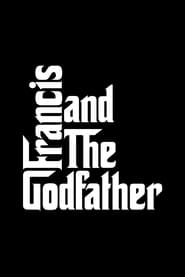“Francis and The Godfather” is a movie that delves into the making of the iconic film “The Godfather”. It zooms in on the tense negotiations and battles fought behind the scenes, depicting the clash between two powerful figures in the film industry – Francis Ford Coppola, the ambitious director, and Mario Puzo, the stubborn author. It reveals their rollercoaster journey as they navigate through creativity, control, and compromise to create a masterpiece that would shape cinema forever. With its unfiltered insights and gripping storytelling, this movie tantalizes our curiosity about the fascinating world lurking behind one of Hollywood’s most celebrated movies.

CLICK HERE🡇🡇🡇🍿_Watch Francis and The Godfather English Subtitles_
Review
Francis and The Godfather: A Cinematic Masterpiece in the Orwellian Era
Francis and The Godfather, a film that has captivated audiences worldwide, is a testament to the genius of director Francis Ford Coppola. Drawing inspiration from the Mario Puzo novel of the same name, this movie serves as a stark reminder of the unyielding power struggles within the crime underworld. Set in 1940s New York, this epic tale unravels the life of Don Vito Corleone, played by Marlon Brando, and his youngest son, Michael, portrayed by Al Pacino.
The storyline transports viewers into a world where violence intertwines with loyalty and where power can be attained through manipulation. Francis and The Godfather explores themes of family, honor, and corruption in a way that Orwell himself would have appreciated. In this cinematic masterpiece, Coppola delves deep into the human psyche, revealing the darkness that resides within even the most revered individuals.
News surrounding the release of Francis and The Godfather has been met with an air of anticipation and excitement. Fans eagerly await its arrival on the big screen to witness one of cinema’s most iconic stories come to life. With its gripping plotline and stellar cast, there is no doubt that this film will leave an indelible mark on popular culture.
The performances in Francis and The Godfather are nothing short of exceptional. Marlon Brando’s portrayal of Don Vito Corleone is breathtakingly nuanced. His commanding presence dominates every scene he appears in, capturing your attention with every word he utters. Al Pacino’s transformation from an innocent outsider to a ruthless mafia leader is a testament to his acting prowess.
The history behind this film is as intriguing as its plotline. Coppola faced numerous obstacles during production due to conflicts with studio executives who were skeptical about his casting choices and creative vision for storytelling. However, against all odds, he persevered and delivered a film that would go on to become a critical and commercial success.
The score of Francis and The Godfather, composed by Nino Rota, deserves special mention. Its haunting melodies create an atmosphere of unease that lingers long after the credits roll. The popularity of the film owes much to Rota’s unforgettable compositions, which elevate the tension and emotion on screen.
Filming this epic required tremendous dedication from all involved. Coppola’s attention to detail was evident in every frame, creating a visual feast for the audience. From the dimly lit back alleys of New York to the opulent interiors of Don Vito’s mansion, each setting was meticulously designed to transport viewers into a bygone era.
Evaluated against its contemporaries, Francis and The Godfather stands head and shoulders above them all. Its seamless blend of storytelling, acting prowess, and technical brilliance has secured its place in cinema history. This film has garnered numerous awards and accolades, solidifying its position as a true masterpiece.
The cinematography in Francis and The Godfather is awe-inspiring. Each shot feels meticulously planned, capturing both the grandeur and grittiness of 1940s New York. Coppola’s use of shadows heightens the tension in every scene, leaving audiences on edge as they are drawn deeper into this world of crime and power struggles.
Opinions on this film are plentiful, ranging from glowing praise to sharp criticism. Some commend Coppola’s ability to breathe life into Puzo’s novel while others argue that it fails to capture the depth of character development present on paper. However, few can deny that this movie continues to hold audiences captivated decades after its initial release.
Certain scenes in Francis and The Godfather have become cultural touchstones. Who can forget Michael Corleone’s chilling soliloquy as he exacts his revenge? Or Don Vito Corleone’s iconic line, “I’m gonna make him an offer he can’t refuse”? These moments have transcended the movie screen, imprinting themselves in the collective memory of film enthusiasts.
Gossip surrounding the making of Francis and The Godfather is as intriguing as the film itself. Rumors abound about Brando’s unique method acting techniques, Pacino’s initial reluctance to play Michael Corleone, and clandestine meetings between Coppola and real-life mobsters to ensure authenticity. These whispers only serve to enhance the enigma surrounding this cinematic gem.
The soundtracks featured in Francis and The Godfather are a testament to its cultural significance. Songs like “Speak Softly Love” by Andy Williams continue to evoke emotions long after the movie ends. These compositions add another layer of depth to the storytelling, heightening the audience’s emotional connection to the narrative.
An analysis of Francis and The Godfather reveals its masterful use of special effects. Though not reliant on flashy visuals, the film employs subtler techniques that enhance its realism. Gunfire looks genuine without overpowering the story, exemplifying Coppola’s commitment to authenticity.
The development of dialogue within Francis and The Godfather showcases Coppola’s skill as a screenwriter. Each line is laced with meaning, leaving audiences hanging onto every word. Whether it be a quiet conversation or a heated confrontation, every interaction serves to deepen our understanding of character motivations and desires.
The crews working behind the scenes deserve recognition for their tireless efforts in bringing this vision to life. From costume designers meticulously crafting period-appropriate outfits to set decorators creating authentic environments, each member played an integral role in immersing viewers in 1940s New York City.
Criticism of Francis and The Godfather is not without merit. Some argue that certain characters lack sufficient development or that certain plot points feel rushed. However, these perceived flaws are minor when compared to the film’s overall impact and lasting legacy.
Production of Francis and The Godfather was not without its challenges. Studio interference, scheduling conflicts, and budgetary constraints were just a few of the hurdles faced by Coppola and his team. Despite these obstacles, they managed to create a film that transcends its production woes, becoming an enduring testament to the power of perseverance.
Editing in Francis and The Godfather plays a crucial role in crafting its narrative. The seamless transitions between scenes propel viewers deeper into this world of organized crime. The pace is deliberate, allowing moments of quiet introspection to juxtapose against explosive acts of violence.
In conclusion, Francis and The Godfather stands as an Orwellian masterpiece that explores the darker side of humanity with unflinching honesty. From its engrossing storyline to its impeccable cast, this film epitomizes Coppola’s genius as a director. Its success lies not only in its critical acclaim but also in its ability to resonate with audiences for generations to come. As time marches forward, Francis and The Godfather continues to stand as a testament to the enduring power of cinema.
Technical Data

- Release :
- Runtime : 0
- Genre : Drama
- Cast : Oscar Isaac as Francis Ford Coppola, Jake Gyllenhaal as Robert Evans, Elisabeth Moss as Eleanor Coppola, Elle Fanning as Ali MacGraw
- Crew : Barry Levinson as Screenplay, Barry Levinson as Director, Mike Marcus as Producer, Doug Mankoff as Producer, Andrew Spaulding as Producer
- Revenue : 0
- Budget : 0
- Company : Echo Lake Entertainment, Baltimore Pictures
- Popularity : 2.39
- Summary : A drama about the legendary and wild battles that went into making the 1972 classic The Godfather.
- Tagline :
